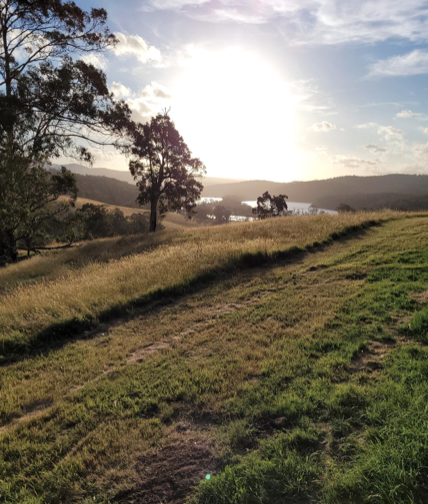Context
In Australia, the post-colonial food system has severely degraded the environment, with intensive agriculture and livestock farming dedicated to export. This situation has been exacerbated by the forced abandonment of indigenous Australian rural care practices and agricultural know-how.
During colonisation, the myth of Aboriginal hunter-gatherers persisted. In recent years, however, a number of studies have cast doubt on this myth. In 2014, Bruce Pascoe, an Australian Aboriginal teacher, writer and academic, published "Dark Emu. Black seeds: agriculture or accident?", a book explaining, among other things, that the Aborigines were also farmers. This myth was in fact used for ideological purposes to justify colonisation and the agricultural exploitation of Aboriginal land by the colonisers.
In 2019, Bruce Pascoe, again with a view to promoting the re-engagement and empowerment of indigenous communities, came up with the idea of mobilising Australians to participate in the creation of a new business ecosystem around traditional food culture. He created Black Duck Foods, an indigenous social and family enterprise.
Project
Black Duck Foods aims to re-establish traditional farming methods in today's Australian food system. It is doing this by learning from the way the ancients managed and organised the country, and by researching how food was grown sustainably.
Black Duck Foods employs a large number of Aboriginals to ensure that their skills and knowledge of traditional practices are valued and shared.
The project is being developed at the Black Duck farm in Genoa, Victoria. A true centre of research and knowledge, the farm not only provides employment for local people, but also a culturally safe space to learn about traditional agriculture. Ancestral seed and grain growing methods are practised here, and workshops are organised to share knowledge about indigenous grains.

At Black Duck Farm, the cattle are removed to allow the native grasses (of which there is a huge variety: yam daisy, native myrtle, murdong, etc.) to develop. The seeds are then harvested and some are returned to the soil to limit the growth of weeds. These seeds are used to make flour.
These ancestral techniques also make use of fire: plots of land are burned to return carbon to the soil, which benefits the grasses. This also allows phosphorus and potassium to be returned to the soil, promoting the health of the next crop.
"It is a systemic change. We want people to eat Aboriginal food. We want them to think about new ways of doing business; we want to create a new market with a fair distribution of income; we want to improve and develop First Nations businesses within that market. We are building an infrastructure for the future - the people, the culture and the land."
Chris Andrew, CEO of Black Duck Foods
Funding
Bruce Pascoe's business was established with funding from First Australians Capital, a national Indigenous-led organisation that focuses on early-stage businesses.
Achievements
Black Duck Foods has already helped to reintroduce indigenous crops to the farm and conducted a number of small-scale harvests.
The next step is to expand the company's activities by commercialising the production of seeds to plant more indigenous grains in the country. Indeed, indigenous grains and tubers are a way of telling the stories of the First Nations and bringing back to the forefront agricultural practices used before the colonisation of the Australian continent.
This leaflet was produced by Magda Salvatore, Let's Food intern in June 2021.
Last modification : 23 Jan 2024.
Black Duck Foods
Black Duck Foods is an Australian company that seeks to rehabilitate traditional Aboriginal farming methods.